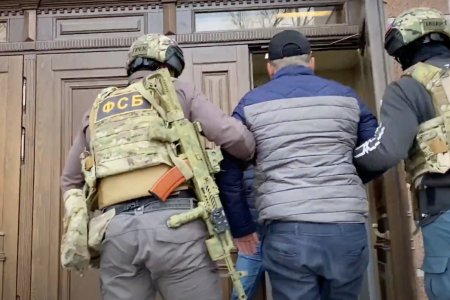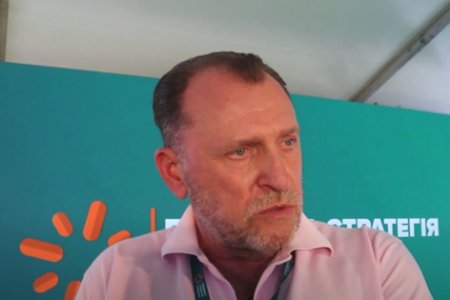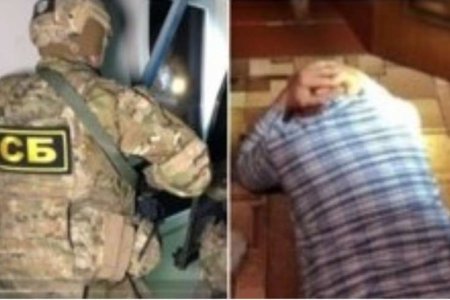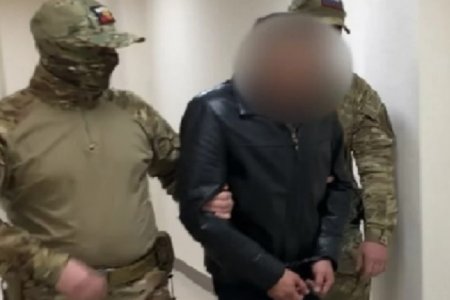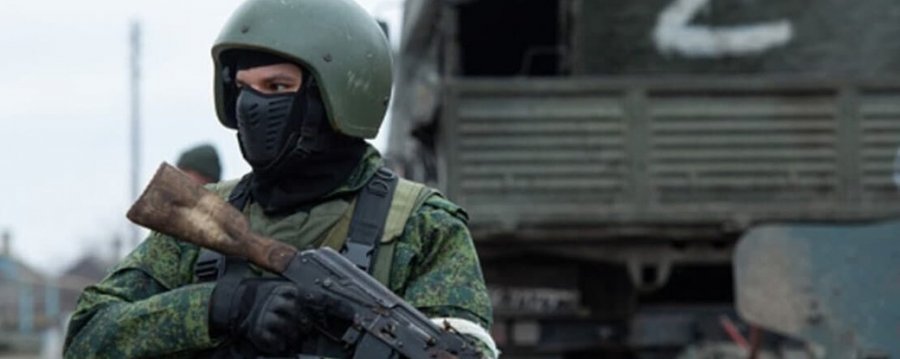
A Russian-controlled ‘court’ in occupied Crimea has sentenced another young Crimean Tatar to ten years’ imprisonment on absurd charges after the Russian FSB effectively abducted him. Arsen Ibraimov is one of an ever-growing number of Crimean Tatars and other Ukrainians put on ‘trial’ in occupied Crimea after either being abducted by the Russian military from occupied parts of the Kherson or Zaporizhzhia oblasts or illegally seized by the Russian FSB or the administrative border between mainland Ukraine and Crimea. Most are accused of involvement in a perfectly legal organization in mainland Ukraine, however at least two Ukrainians are facing charges of ‘international terrorism’ on Ukrainian territory that Russia has invaded and is illegally occupying.
Arsen Ibraimov
Russian and occupation media reported on 9 April 2022 that the FSB had detained a Ukrainian citizen, born in 1988, whom it ‘accused’ of being a member of what was described as an illegal armed formation, namely the Noman Çelebicihan Battalion. This ‘battalion’ is neither armed, nor illegal in mainland Ukraine where it functioned and where the peaceful actions which the FSB accuse Ibraimov of involvement in took place. The Noman Çelebicihan [or ‘Asker’] Battalion was founded by Crimean Tatar activist and businessman Lenur Islyamov on 1 January 2016, with the first members people who had taken part in the civic blockade of occupied Crimea. This blockade was initiated by Crimean Tatar leaders Mustafa Dzhemilev and Refat Chubarov, together with Islyamov, on 20 September 2015 with specifically human rights demands. Russia reacted with aggressive hysteria to the legitimate demand for an end to an absurd situation where goods and electricity were being transported to Crimea from mainland Ukraine. Moscow’s anger does not change the fact that the blockade was not illegal, unlike Russia’s occupation of Ukrainian Crimea. On 1 June this year, Russia’s Supreme Court declared the Battalion (which had already, effectively, ceased to exist) a ‘terrorist organization’. For the moment, the sentences do not reflect this, but that could change at any time.
In the case of 34-year-old Arsen Ibraimov, the FSB report itself accused him of activities that were peaceful and legal. They asserted that “according to FSB information, the man took an active part in the goods and energy blockade of Crimea, as well as in anti-Russian protests in the area of the ‘Chonhar’ checkpoint.”
Even if one disregards the illegality of Russia’s occupation of Crimea, everything about Ibraimov’s seizure was of shocking lawlessness. If the occupation regime objected to alleged activities in mainland Ukraine, the most they could legitimately do is ban him from entering occupied Crimea. Instead, they essentially abducted him, with a Russian-controlled ‘court’ later remanding him in custody. According to Crimea SOS, Ibraimov was, in fact, detained / abducted on 6 April, with this meaning that the FSB had him under their total control for three days before they admitted to his ’detention’. During such periods, the FSB typically applies torture to force people to ‘confess’ to whatever they demand.
Ibraimov is represented by lawyer Alexei Ladin who says that Ibraimov had nothing to do with the Battalion. During the period when the FSB claimed that he was taking part in the blockade (basically from the beginning of 2016 onwards), Ibraimov asserts that he was working in Kherson, Kyiv, Georgia and the Astrakhan oblast (Russia).
These are politically motivated prosecutions in which conviction is guaranteed regardless of the illegality of the charges, and the lack of any evidence. Since Russia’s full-scale invasion of Ukraine, there has been a massive increase in arrests on these charges (from six before 24 February, to 16 now). In the vast majority of cases, next to nothing is even known about the ‘trials.’ It has only now become clear that Ibraimov was sentenced on 25 August by the occupation Kievsky District Court in Simferopol to 10 years. Why he received a 10-year sentence, while 31-year-old Ruslan Abdurakhmanov was sentenced to 5 years and 25-year-old Rustem Osmanov got six years, would seem to be as arbitrary as the charges themselves.
Yevhen Yaroshenko from Crimea SOS believes that the Russian occupation regime is revenging itself on Crimean Tatars from Kherson oblast for the civic blockade of Crimea. In fact, although Crimean Tatars are undoubtedly Russia’s main target, they have used the same charges against one ethnic Ukrainian, Oleksiy Kiselyov, who was seized by the Russian invaders from his home in Henichesk (Kherson oblast). See: Retired Ukrainian naval commander abducted, tortured and taken to Russian-occupied Crimea ‘for trial’
Other abductions
Russia is probably using occupied Crimea to imprison many Ukrainians abducted by the Russian military from parts of mainland Ukraine, and the two men mentioned here - Yaroslav Zhuk and Pavlo Zaporozhets – may be merely the first.
Zhuk is one of two volunteers from Melitopol (Zaporizhzhia oblast) who, together with Illya Yenin, was seized by the Russians who burst into their homes during the night from 17-18 June. Almost a month later, the Russian state-controlled TASS agency claimed that “the saboteur who made an attempt on the life of the Russian-installed 'director' of the Melitopol department of education’, Olena Shapurova, had been ‘detained’. A video was produced in which Zhuk, is shown alone, apparently ‘confessing’ to the attack, and saying that he is part of the partisan movement, under the command of Ukraine’s Security Service [SBU]. He asserts that Ivan Fedorov, the elected Mayor of Melitopol and a former hostage, was also directly involved. There is every reason to believe that this ‘confession’ was obtained through torture.
The aggressor state is charging Zhuk with ‘an act of international terrorism’ under Article 361 § 1 of Russia’s criminal code.
Pavlo Zaporozhets
The 32-year-old Ukrainian earlier took part in ATO, the military operation in Donbas that began in 2014. According to Natalya Bimbrayte, a Kherson human rights activist, Zaporozhets was seized by the Russians from his home in Kherson on 9 May. After three months of torture in Russian captivity he was taken to occupied Crimea, and ‘officially’ detained by the FSB. He too is likely to face charges under Article 361 of Russia’s criminal code, so-called ‘international terrorism’.
Even before Russia’s full-scale invasion of Ukraine, it was holding at least 120 Crimean Tatars and other Ukrainian political prisoners. That figure is now significantly higher, although the whereabouts of many of those abducted by the Russian invaders remain unknown.
